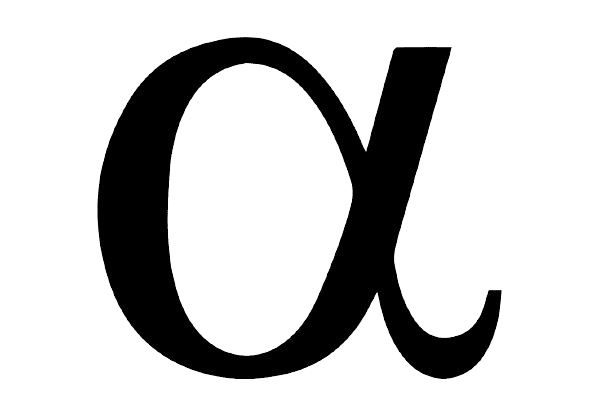Why Choose Align Consulting Group
When it comes to optimizing your healthcare business for growth, scalability, and efficiency, Align Consulting Group stands out as a trusted partner. Here are the key reasons why healthcare business owners should choose Align Consulting Group as their consultant for healthcare business optimization.
Expertise in Healthcare Business Optimization
Align Consulting Group brings extensive expertise in healthcare business optimization. Their team of experienced consultants understands the unique challenges and complexities of the healthcare industry. With their in-depth knowledge and industry insights, they can provide tailored solutions to address specific business needs. Whether it’s revenue cycle management, process improvement, or strategic planning, Align Consulting Group has the expertise to guide healthcare businesses towards success.
Revenue Growth Strategies
Align Consulting Group excels in developing revenue growth strategies for healthcare businesses. By implementing key performance indicators (KPIs) and tracking processes, they help healthcare practices increase their monthly revenue and achieve substantial profits. For example, in one case study, Align Consulting Group helped an ophthalmology group in Midwest Michigan increase monthly revenue by 15% and achieve profits of $200,000 in the first year (Medical Advantage). Their proven strategies and data-driven approach can significantly impact the financial growth of healthcare businesses.
Scalability Solutions
Scaling a healthcare business requires careful planning and execution. Align Consulting Group offers scalable solutions tailored to the unique needs of each client. By evaluating the current infrastructure, analyzing market trends, and implementing efficient processes, they help healthcare businesses expand their operations while maintaining quality patient care. With their guidance, businesses can navigate the challenges of growth and maximize their potential.
Efficiency Improvement Initiatives
Efficiency is a critical aspect of healthcare business optimization. Align Consulting Group specializes in identifying inefficiencies in healthcare processes and implementing improvement initiatives. By leveraging technology, data analysis, and process optimization techniques, they help healthcare businesses streamline operations, reduce costs, and enhance overall efficiency. For instance, one case study showcased how Align Consulting Group achieved a 50% reduction in days in accounts receivable (A/R) for a cardiovascular specialty group, leading to a significant increase in cash flow (Medical Advantage). Their comprehensive approach ensures that healthcare businesses can deliver high-quality care while maximizing their operational efficiency.
Align Consulting Group’s expertise, revenue growth strategies, scalability solutions, and efficiency improvement initiatives make them an ideal partner for healthcare business optimization. With their guidance, healthcare businesses can achieve sustainable growth, improve their bottom line, and navigate the ever-evolving healthcare landscape.
The Importance of Healthcare Business Optimization
In today’s rapidly changing healthcare landscape, optimizing business operations is crucial for healthcare organizations to thrive and provide high-quality care. Healthcare business optimization encompasses various strategies and initiatives aimed at improving revenue, efficiency, and scalability. Let’s explore why it is essential for healthcare organizations to prioritize business optimization.
Rising Healthcare Costs
Healthcare costs have been steadily increasing, posing significant challenges for both patients and healthcare providers. By 2025, healthcare costs in the United States are projected to reach a staggering $5.7 trillion, largely due to the aging population and rising prevalence of chronic diseases. To navigate this financial landscape successfully, healthcare organizations need to optimize their business operations to maximize revenue, minimize waste, and deliver cost-effective care.
Inefficiencies in Healthcare Processes
Inefficient healthcare processes contribute to a significant portion of wasted resources and unnecessary expenditures. It is estimated that inefficiencies in healthcare processes result in $1 trillion in wasted resources annually, accounting for up to one-third of all healthcare expenditures in the United States (EY). These inefficiencies can include fragmented communication, redundant administrative tasks, and unnecessary delays in patient care. Healthcare business optimization focuses on identifying and addressing these inefficiencies to streamline workflows, improve productivity, and enhance patient outcomes.
Digital Technologies and Operational Efficiency
Embracing digital technologies is a key component of healthcare business optimization. According to a survey, 48% of health system executives believe that adopting digital technologies, such as telehealth, artificial intelligence, and wearables, is fundamental to achieving operational efficiency in healthcare. Digital tools can streamline administrative tasks, facilitate data-driven decision-making, enhance communication, and improve patient engagement. By leveraging these technologies, healthcare organizations can optimize their processes, reduce costs, and deliver more efficient and patient-centered care.
Precision Health and Genomics
Precision health and genomics have the potential to revolutionize healthcare by offering more personalized and effective treatments for patients. By analyzing an individual’s genetic makeup, lifestyle, and environmental factors, precision health enables targeted interventions and therapies. This approach can result in better patient outcomes and significant cost savings. In fact, it is estimated that precision health and genomics can save $67 billion in healthcare costs annually in the United States. Healthcare business optimization involves incorporating precision health strategies into clinical workflows, leveraging genomic data, and tailoring treatments to individual patients.
By prioritizing healthcare business optimization, organizations can address rising costs, streamline processes, harness digital technologies, and embrace precision health approaches. This not only leads to improved financial performance but also enhances the overall quality, efficiency, and sustainability of healthcare delivery. Healthcare organizations can benefit from partnering with consultants like Align Consulting Group, who have expertise in healthcare business optimization and can provide tailored strategies to drive revenue growth, scalability, and operational efficiency.
Success Stories: Align Consulting Group
When it comes to healthcare business optimization, Align Consulting Group has a proven track record of delivering results. Through their expertise and strategic approach, they have helped numerous healthcare organizations achieve significant improvements in revenue cycle management, key performance indicator tracking, net collection rates, and days in accounts receivable.
Revenue Cycle Management Improvement
Align Consulting Group has successfully assisted a group of small practices in southeast Michigan to enhance their revenue cycle management. In the first year of their intervention, collections increased by 25%, leading to additional profits of $350,000 (Medical Advantage). By implementing effective strategies in billing, front-end collections, and charge capture processes, Align Consulting Group ensures healthcare organizations optimize their revenue streams.
Key Performance Indicator Tracking
Align Consulting Group understands the importance of tracking key performance indicators (KPIs) to monitor progress and drive success. By implementing KPIs and processes to track monthly goals, an ophthalmology group in Midwest Michigan experienced a 15% increase in monthly revenue and achieved profits of $200,000 in the first year (Medical Advantage). This demonstrates Align Consulting Group’s commitment to helping healthcare organizations achieve their financial objectives through effective performance tracking.
Net Collection Rate Increase
One of the notable success stories of Align Consulting Group involves an orthopedic practice in Western Michigan. Through their intervention, the practice saw a remarkable 37% increase in net collection rates within the first year, resulting in additional profits of $40,000. Align Consulting Group’s expertise in optimizing revenue cycles ensures that healthcare organizations can maximize their collections, leading to improved financial stability.
Reduction in Days in Accounts Receivable
Efficient management of accounts receivable is crucial for maintaining a healthy cash flow. Through the use of technology and process improvement strategies, Align Consulting Group achieved a 50% reduction in days in accounts receivable for a cardiovascular specialty group in southwest Michigan. By streamlining workflows and implementing effective systems, Align Consulting Group helps healthcare organizations improve their cash flow and overall financial performance.
Align Consulting Group’s success stories demonstrate their ability to deliver tangible results in healthcare business optimization. Through their expertise and tailored strategies, they help healthcare organizations achieve their revenue goals, track performance effectively, increase net collection rates, and reduce days in accounts receivable. With Align Consulting Group as a partner, healthcare organizations can elevate their financial performance and thrive in today’s competitive landscape.
Strategies for Healthcare Business Optimization
To optimize and grow a healthcare business, it is essential to implement effective strategies that address various aspects of the organization. Align Consulting Group offers a range of strategies to help healthcare businesses achieve revenue growth, scalability, and improved efficiencies. Let’s explore some of these strategies:
S.W.O.T. Analysis
Conducting a S.W.O.T. analysis (Strengths, Weaknesses, Opportunities, Threats) can provide valuable insights for healthcare practices. By involving physicians, extenders, and key staff members in this analysis, practices can identify areas for improvement and understand market competition. This process helps in identifying strengths to leverage, weaknesses to address, opportunities to pursue, and potential threats to mitigate. Through this analysis, practices can uncover valuable insights and make informed decisions to enhance their overall performance and competitiveness.
Utilizing Big Data
In today’s digital age, utilizing “big data” has become increasingly important for healthcare businesses. By asking the right questions and measuring the right metrics, practices can leverage data from various sources to inform strategic decisions and evaluate performance. Analyzing big data can help identify trends, patient preferences, and operational inefficiencies. This data-driven approach enables healthcare businesses to make data-backed decisions and optimize their operations for improved outcomes.
Evaluating Profit per Patient Visit
To improve revenue streams, healthcare practices can evaluate the profit per patient visit metric. By comparing their practice with others in the same specialty field, practices can identify opportunities to enhance revenue and profitability. This evaluation involves analyzing factors such as reimbursement rates, patient volume, and service mix. Through strategic changes and optimizations, practices can maximize revenue and profitability while delivering quality care to patients (Coronis Health).
Process Optimization Techniques
Efficiency plays a crucial role in healthcare business optimization. Process optimization techniques, such as Six Sigma, can be embraced to enhance clinical processes, reduce errors, improve patient satisfaction, and maximize billings and collections. These techniques focus on streamlining workflows, eliminating waste, and improving overall operational efficiency. By implementing proven process optimization methodologies, healthcare businesses can enhance productivity, reduce costs, and deliver better patient experiences.
Align Consulting Group offers expertise in implementing these strategies and customizing them to meet the unique needs of each healthcare business. By leveraging these strategies, healthcare businesses can optimize their operations, drive revenue growth, and improve overall efficiency.
The Role of Technology in Healthcare Optimization
In today’s rapidly evolving healthcare landscape, technology plays a pivotal role in optimizing healthcare businesses to enhance efficiency, improve patient outcomes, and drive growth. Align Consulting Group recognizes the importance of leveraging technology to achieve these goals. Let’s explore some key technological advancements that contribute to healthcare optimization.
Impact of IoT in Healthcare
The Internet of Things (IoT) has made a significant impact on the healthcare industry. By connecting devices and systems, IoT enables seamless data sharing, real-time monitoring, and remote patient care. According to Fingent, the healthcare sector expects to save $9.9 billion annually globally by implementing IoT in healthcare by 2026. IoT empowers healthcare organizations to streamline operations, automate processes, and improve patient outcomes.
AI and its Benefits
Artificial Intelligence (AI) has revolutionized healthcare by augmenting decision-making processes, automating administrative tasks, and enhancing clinical diagnostics. AI-powered algorithms can analyze vast amounts of data, identify patterns, and generate actionable insights. The utilization of AI in healthcare is projected to save up to $150 billion annually for the US healthcare economy by 2026, as stated by Fingent. AI enables healthcare providers to deliver personalized care, improve treatment plans, and optimize resource allocation.
Blockchain Technology in Healthcare
Blockchain technology offers a secure and transparent way to store, manage, and share healthcare data. It ensures data integrity, privacy, and interoperability, which are crucial aspects of healthcare optimization. The implementation of blockchain technology in healthcare is expected to save the US healthcare industry up to $100-$150 billion annually by 2025, according to Fingent. Blockchain facilitates efficient health data exchange, enhances data security, and enables better collaboration among healthcare stakeholders.
Advancements in Healthcare Technologies
The continuous advancements in healthcare technologies, such as telemedicine, robotics, wearables, and virtual reality, contribute to healthcare optimization. Telemedicine, for example, allows remote consultations, increasing access to healthcare and reducing costs. The global telemedicine market is projected to reach $155.1 billion by 2025, pointing to the significant growth of technology in the healthcare sector, as highlighted by Fingent. These technologies enhance patient care, facilitate early detection of diseases, and improve overall operational efficiency.
By embracing and harnessing the power of technology, healthcare businesses can unlock new opportunities for growth, optimize their processes, and deliver enhanced patient experiences. Align Consulting Group understands the significance of technology in healthcare optimization and leverages these advancements to drive revenue growth, scalability, and efficiency improvements for their clients.
Delivering Quality Healthcare
In the pursuit of delivering quality healthcare, healthcare businesses must focus on various aspects of improvement. Align Consulting Group understands the importance of quality healthcare and offers strategies to help healthcare businesses optimize their operations. This section explores the six aims of quality healthcare, system and process improvement, valid and reliable quality measures, and quality improvement strategies.
The Six Aims of Quality Healthcare
According to the Institute of Medicine (IOM), quality healthcare encompasses six aims: effectiveness, safety, patient-centeredness, timeliness, efficiency, and equity (NCBI Bookshelf). Each aim plays a vital role in providing high-quality care to patients:
- Effectiveness: Ensuring that healthcare interventions and treatments produce desired outcomes based on scientific evidence.
- Safety: Preventing harm to patients and minimizing medical errors by implementing robust safety measures.
- Patient-centeredness: Placing patients at the forefront of care, considering their preferences, values, and needs.
- Timeliness: Providing care promptly to reduce delays and improve patient outcomes.
- Efficiency: Optimizing resource utilization to achieve desired outcomes without unnecessary waste.
- Equity: Ensuring equal access to healthcare services, regardless of race, gender, socioeconomic status, or other factors.
By focusing on these aims, healthcare businesses can enhance the overall quality of care they provide.
System and Process Improvement
To deliver quality healthcare, it is crucial to recognize that errors often stem from system or process failures, rather than individual actions (NCBI Bookshelf). Healthcare businesses must adopt various process-improvement techniques to identify inefficiencies, ineffective care, and preventable errors. By analyzing workflows, identifying bottlenecks, and implementing evidence-based practices, system and process improvements can be made to enhance patient care and safety.
Valid and Reliable Quality Measures
Valid and reliable quality measures are essential for evaluating and improving healthcare outcomes. The Agency for Healthcare Research and Quality (AHRQ) and other national organizations endorse the use of such measures. These measures assess various aspects of care, including patient safety, clinical effectiveness, patient experience, and care coordination. Resources like AHRQ’s National Quality Measures Clearinghouse and the National Quality Forum’s website provide access to a wide range of valid and reliable quality measures.
Quality Improvement Strategies
Quality improvement strategies play a vital role in enhancing healthcare outcomes. Healthcare businesses can implement various strategies to improve the quality and safety of care. Some commonly used strategies include:
- Failure modes and effects analysis: Identifying potential failures and their effects to prevent them from occurring.
- Plan-Do-Study-Act: A systematic approach involving planning, implementing, studying outcomes, and acting upon findings to drive improvement.
- Six Sigma: A data-driven methodology aiming to reduce defects and variations in processes.
- Lean: A systematic approach to eliminate waste and improve efficiency in healthcare processes.
- Root-cause analysis: Identifying the underlying causes of adverse events to prevent their recurrence.
By adopting these quality improvement strategies, healthcare businesses can continuously enhance the care they deliver to patients.
In summary, delivering quality healthcare requires a focus on the six aims of quality healthcare, system and process improvement, valid and reliable quality measures, and quality improvement strategies. Align Consulting Group understands these essential components of quality healthcare and offers expertise in healthcare business optimization to help healthcare businesses excel in their pursuit of delivering the best possible care.
Measuring and Optimizing Healthcare Content Performance
In the world of healthcare marketing, measuring and optimizing content performance is crucial for healthcare organizations to assess the effectiveness of their content marketing efforts and make data-driven decisions to enhance performance. By implementing key performance indicators (KPIs) and utilizing tools like Google Analytics, conducting content audits, and establishing a content calendar, healthcare organizations can maximize the impact of their content and achieve their business objectives.
Key Performance Indicators for Content Optimization
Key performance indicators (KPIs) play a vital role in measuring and optimizing healthcare content performance. These indicators provide valuable insights into the effectiveness of content marketing strategies and help identify areas for improvement. Some common KPIs for healthcare content optimization include:
- Website Traffic: Monitoring the number of visitors to your website helps gauge the reach and visibility of your content.
- Audience Engagement: Assessing metrics such as time spent on page, bounce rate, and social media shares provides insights into how well your content resonates with your audience.
- Lead Generation: Tracking the number of leads generated through content marketing efforts helps evaluate the effectiveness of your content in driving conversions.
- Patient Conversion Rates: Measuring the number of website visitors who convert into patients can help determine the success of your content in generating new business.
Utilizing Tools like Google Analytics
To gain a deeper understanding of content performance, healthcare organizations can leverage tools like Google Analytics. Google Analytics provides valuable insights into website traffic, user behavior, and content performance. It enables healthcare organizations to analyze data such as page views, unique visitors, and referral sources. By utilizing these tools, healthcare organizations can adjust their content strategies to better meet the needs and preferences of their target audience (Healthcare Success).
Conducting Content Audits
Regularly conducting content audits allows healthcare organizations to evaluate existing content, identify gaps or areas for improvement, and align content with business goals. A content audit involves assessing the relevance, accuracy, and engagement level of each piece of content. It helps ensure that content remains up-to-date, engaging, and optimized for performance. By identifying underperforming content and making necessary improvements, healthcare organizations can enhance the overall effectiveness of their content marketing efforts (Healthcare Success).
Establishing a Content Calendar
Establishing a content calendar with a well-defined strategy for creating and publishing content is essential for healthcare organizations to maintain consistency, relevance, and engagement with their target audience. Planning content in advance and aligning it with marketing goals optimizes content performance and drives desired outcomes. A content calendar helps ensure a consistent flow of valuable content and allows healthcare organizations to plan for important events, promotions, or seasonal campaigns. By following a content calendar, healthcare organizations can effectively manage their content creation and distribution, ultimately optimizing their content marketing efforts.
By measuring and optimizing healthcare content performance through the use of KPIs, tools like Google Analytics, content audits, and a well-structured content calendar, healthcare organizations can effectively evaluate the impact of their content and make informed decisions to enhance performance. This approach ensures that content remains relevant, engaging, and aligns with the goals of the organization, ultimately driving success in the competitive healthcare landscape.



